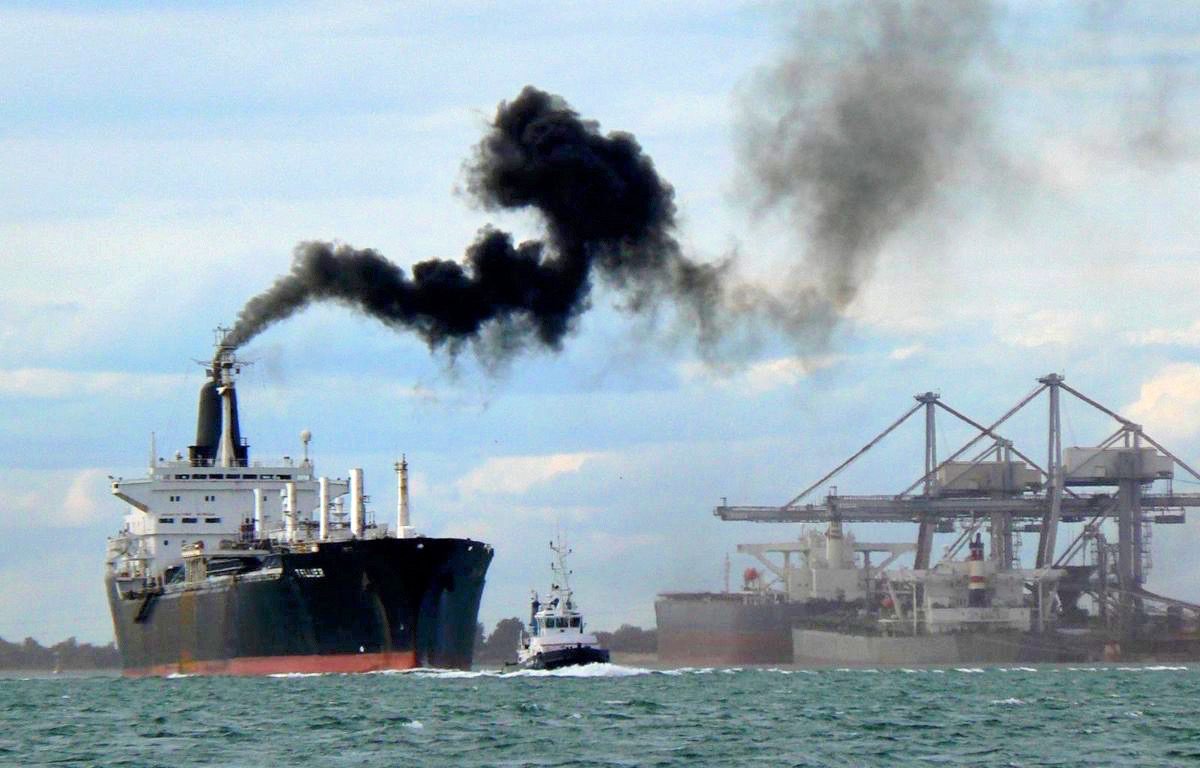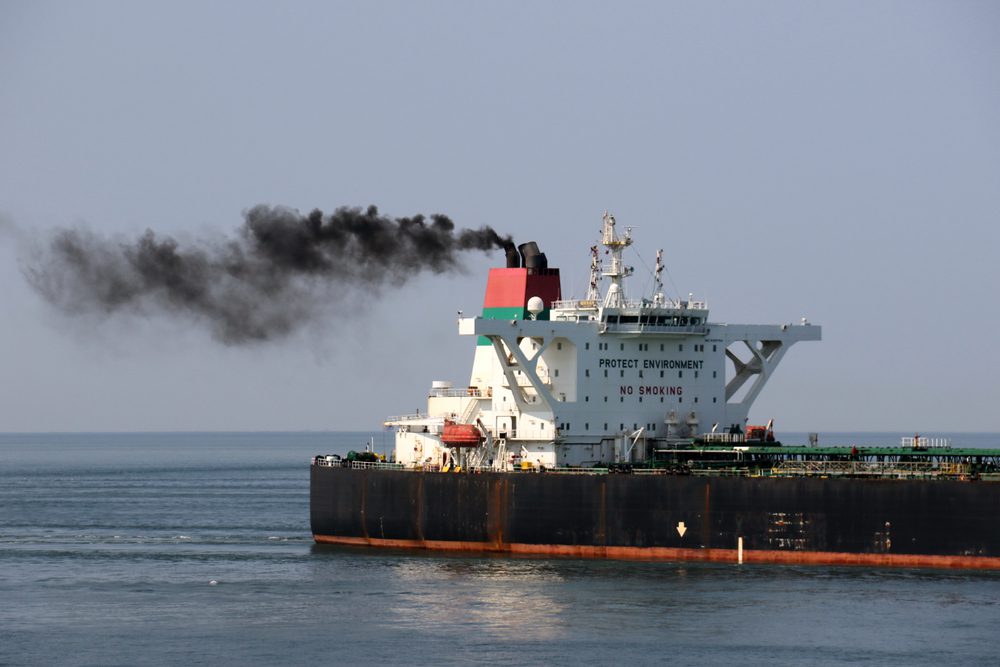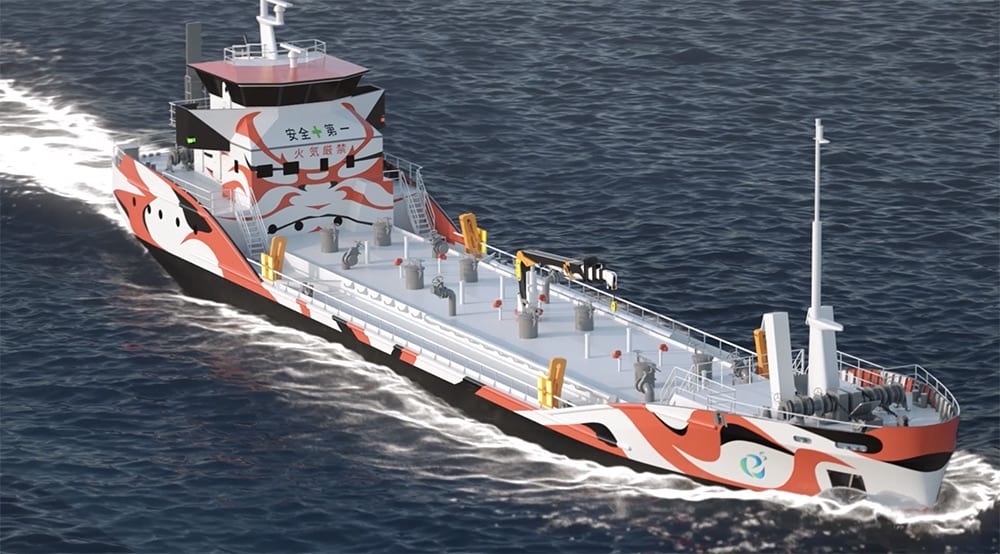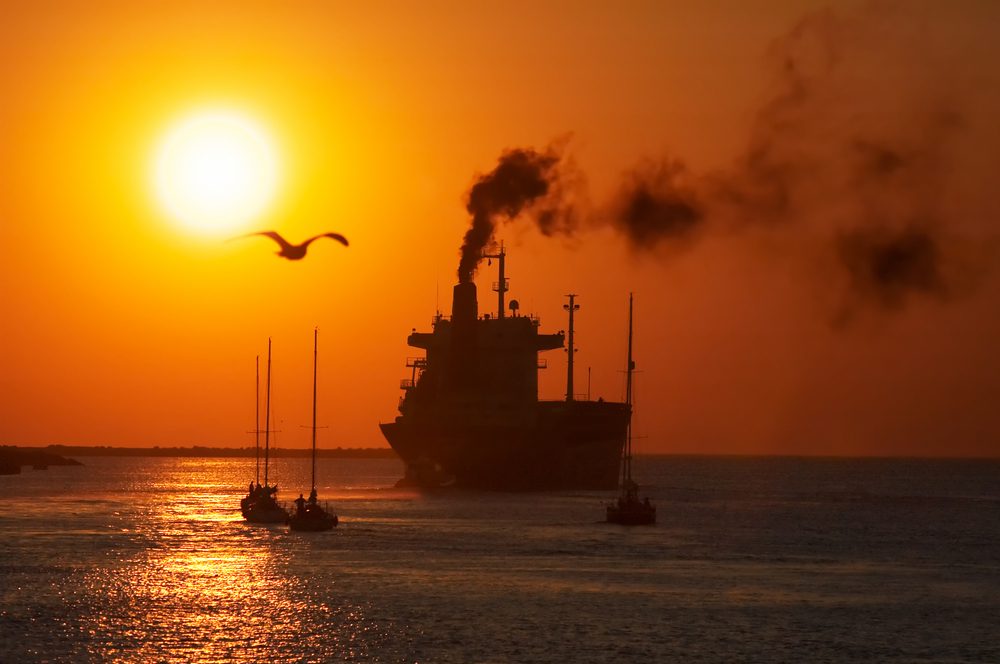Updated: November 23, 2020 (Originally published April 5, 2018)
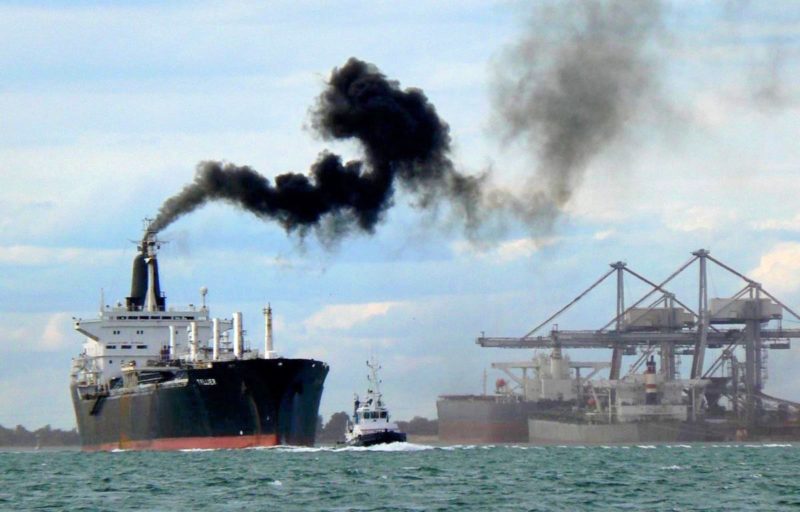
Next week, the International Maritime Organization’s Marine Environment Protection Committee (MEPC) is meeting at IMO Headquarters in London for its 72nd (MEPC 72) session where it is expected to adopt an initial strategy to reduce greenhouse gases from ships.
Since Tuesday, an Intersessional Working Group on Reduction of GHG from Ships has been meeting for a third time to finalize an initial IMO strategy for reducing GHG emissions from ships, which was drafted over the two previous meetings. The final strategy is expected be presented to during MEPC 72 for adoption.
The working group is open to all 173 IMO Member States as intergovernmental organizations and non-governmental organizations. The last meeting of the group, held in October, was attended by more than 200 delegates from more than 50 Member States, as well as international inter-governmental and non-governmental organizations, including the shipping group’s International Chamber of Shipping (ICS), BIMCO, INTERCARGO and INTERTANKO.
In addition to greenhouse gas emissions, MEPC 72 will also focus on the implementation of the upcoming 2020 sulphur cap on ships’ fuel, ballast water management treaty implementation, measures to reduce risks of use and carriage of heavy fuel oil as fuel by ships in Arctic, and marine litter.\
Below is a more detailed breakdown of some of the highlights on the agenda for MEPC 72.
1. Reduction of greenhouse gas emissions from ships
The MEPC is expected to adopt an initial strategy on the reduction of GHG emissions from ships.
The initial strategy will be a framework for Member States, which is expected to set out the future vision for international shipping, the levels of ambition to reduce GHG emissions and guiding principles; to include candidate short-, mid- and long-term further measures with possible timelines and their impacts on States as well as identify barriers and supportive measures including capacity building, technical cooperation and R&D.
It is anticipated that the MEPC will establish a working group on the reduction of GHG emissions from ships.
The Intersessional Working Group on Reduction of GHG Emissions from Ships is expected to finalize the text of the draft initial strategy and provide a report to MEPC 72.
Further work on energy efficiency requirements
Energy-efficiency design standards for new ships and associated operational energy-efficiency measures for existing ships became mandatory in 2013, with the entry into force of relevant amendments to MARPOL Annex VI.
The MEPC is expected to adopt draft amendments to regulation 21 of MARPOL Annex VI regarding Energy Efficiency Design Index (EEDI) requirements for ro-ro cargo and ro-ro passenger ships.
The Committee will be informed that over 2,700 new ocean-going ships have been certified as complying with the energy efficiency standards.
The MEPC will receive a report on progress by the correspondence group on review of the Energy Efficiency Design Index (EEDI) beyond phase 2. The correspondence group is expected to make an interim report to MEPC 73 (October 2018) with a final report to
MEPC 74 (Spring 2019) providing a recommendation on the time period and reduction rates for EEDI phase 3 requirements.
Mandatory data collection system for fuel oil consumption of ships
MARPOL amendments to make mandatory the data collection system for fuel oil consumption of ships entered into force on 1 March 2018. They require data collection to start from calendar year 2019. MEPC 72 will be updated on the status of the development of the IMO Ship Fuel Oil Consumption Database which was launched in March 2018. Relevant matters concerning implementation of the requirement will be considered.
2. Implementation of sulphur 2020 limit
The 0.50% limit on sulphur in fuel oil on board ships (outside designated emission control areas or ECAs, where the limit is 0.10%) will come into effect on 1 January 2020.
The MEPC is expected to consider for approval, with a view to adoption at MEPC 73 (22-26 October 2018), draft amendments to MARPOL Annex VI to prohibit the carriage of non-compliant fuel oil.
The exception would be for ships fitted with an approved “equivalent arrangement” to meet the sulphur limit – such as an exhaust gas cleaning system (EGCS) or so-called “scrubber” – which are already permitted under regulation 4.1 of MARPOL Annex VI. These arrangements can be used with “heavy” high sulphur fuel oil as EGCS clean the emissions and therefore can be accepted as being at least as effective at meeting the required sulphur limit. For a ship without an approved equivalent arrangement, the effect of the draft amendment, which would enter into force on 1 March 2020, would be that the sulphur content of any fuel oil used or carried for use on board shall not exceed 0.50%.
IMO’s Sub-Committee on Pollution Prevention and Response (PPR) is currently developing guidelines to support the implementation of the 2020 sulphur limit. An intersessional working group will meet 9 to 13 July 2018.The MEPC will be asked to approve receiving draft guidelines on ship implementation planning for 2020 directly from the intersessional working group to MEPC 73 in October, in order to ensure appropriate guidelines can be considered by MEPC 73 and issued in good time.
Consistent implementation of the 0.50% sulphur limit for all ships will ensure a level playing field is maintained, with the result that the expected improvement of the environment and human health will be achieved. Sulphur oxides (SOx) are known to be harmful to human health, causing respiratory symptoms and lung disease. In the atmosphere, SOx can lead to acid rain, which can harm crops, forests and aquatic species, and contributes to the acidification of the oceans.
Fuel oil quality – best practice guidance
The MEPC will consider draft best practice guidance for fuel oil purchasers/users; and for fuel oil providers.
The best practices are intended to assist in assuring the quality of fuel oil delivered to, and used onboard ships, with respect to both compliance with the MARPOL requirements and the safe and efficient operation of the ship.
3. Implementation of the Ballast Water Management Convention
The International Convention for the Control and Management of Ships’ Ballast Water and Sediments, 2004 (BWM Convention), entered into force in September 2017 and has, to date, been ratified by 69 countries, representing 75.11% of world merchant shipping tonnage.
Adoption of amendments to the BWM Convention
MEPC 72 is expected to adopt amendments to the BWM Convention, which were approved at the last session. The draft amendments relate to the implementation of the treaty, including the schedule for ships to comply with the requirement to meet the so-called D-2 standard (draft amendments to section B). Other draft amendments (to sections A and D) make mandatory the Code for approval of ballast water management systems, which will also be adopted at the session. Further draft amendments relate to section E on survey and certification.
Since the date of entry into force, ships have been required to manage their ballast water to avoid the transfer of potentially invasive species. All ships must have a ballast water management plan and keep a ballast water record book. Ships are required to manage their ballast water to meet the D-1 ballast water exchange standard; or the D-2 standard, which requires ballast water management to restrict to a specified maximum the amount of viable organisms allowed to be discharged and to limit the discharge of specified indicator microbes harmful to human health.
Experience-building phase
With the BWM Convention’s entry into force, and the approval of a first set of amendments at MEPC 71, there is now increased emphasis on its effective implementation and enforcement. The experience-building phase, (established through a resolution adopted at MEPC 71 (MEPC.290(71)), will enable port States, flag States and other stakeholders to gather, prepare and submit data, the analysis of which will allow a systematic and evidence-based review of the requirements of the Convention and the development of a package of amendments to the Convention as appropriate. MEPC 72 is expected to finalize the associated data gathering and analysis plan.
Guidance for uniform implementation of the BWM Convention
As at every session, the MEPC will consider the development or revision of various guidelines and guidance documents. MEPC 72 is expected to, inter alia, finalize and approve revised guidance on scaling of ballast water management systems (BWMS) and on the type approval process for BWMS; consider matters related to surveys under the BWM Convention following the incorporation of the Interim Survey Guidelines under the BWM Convention into the Harmonized System for Survey and Certification; and consider the application of the BWM Convention to certain specialized ship types. MEPC 72 will also consider whether to review the Procedure for approval of ballast water management systems that make use of Active Substances (G9).
4. Heavy fuel oil in the Arctic
The MEPC will consider the development of measures to reduce risks of use and carriage of heavy fuel oil as fuel by ships in Arctic waters.
The MEPC is expected to consider submitted proposals on what type of measures should be developed, with a view to giving clear instructions to the Sub-Committee on Prevention of Pollution (PPR 6) to start the work when it next meets in early 2019.
Currently, the use and carriage of heavy fuel oil is banned in the Antarctic under MARPOL Annex I regulation 43. It is recommended in the Polar Code that the same rules are applied in the Arctic.
5. Marine litter
The MEPC will be invited to consider a proposal to include a new output on its agenda, to address the issue of marine plastic litter from shipping in the context of 2030 Sustainable Development Goal 14 (SDG 14).
For more on MEPC 72, check out the IMO website.
Editorial Standards · Corrections · About gCaptain

 Join The Club
Join The Club



